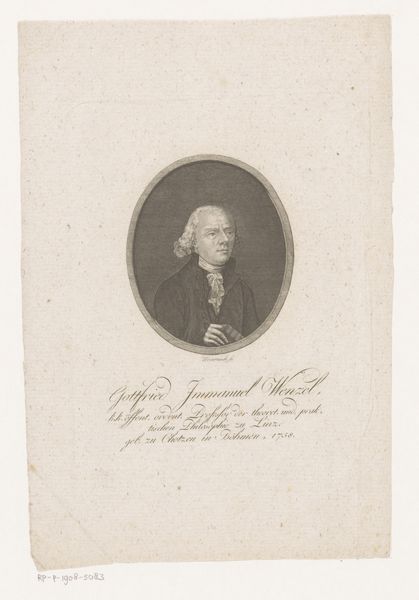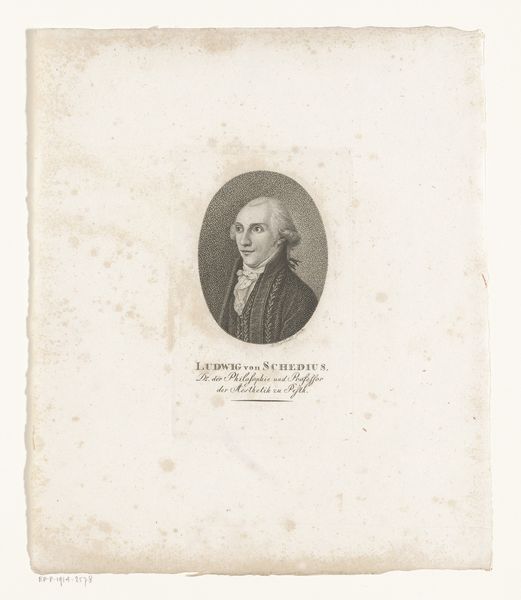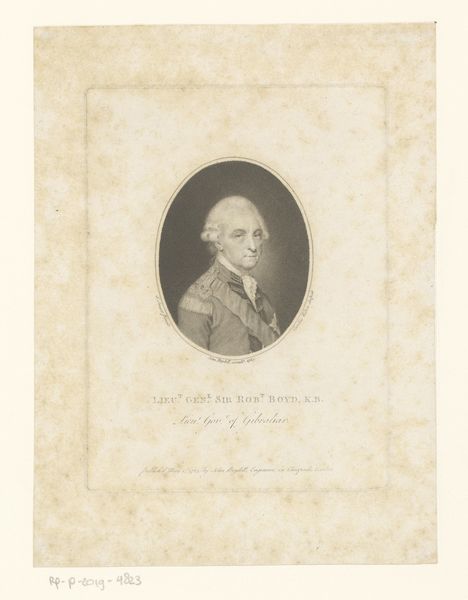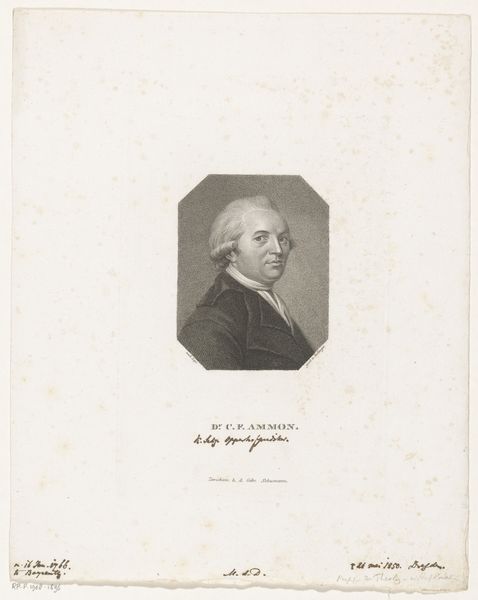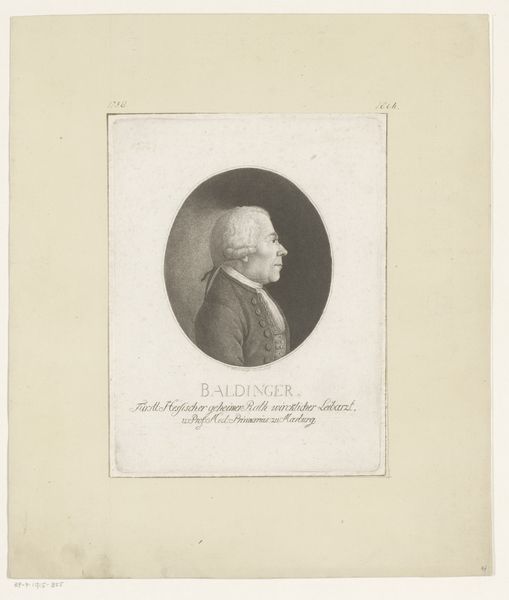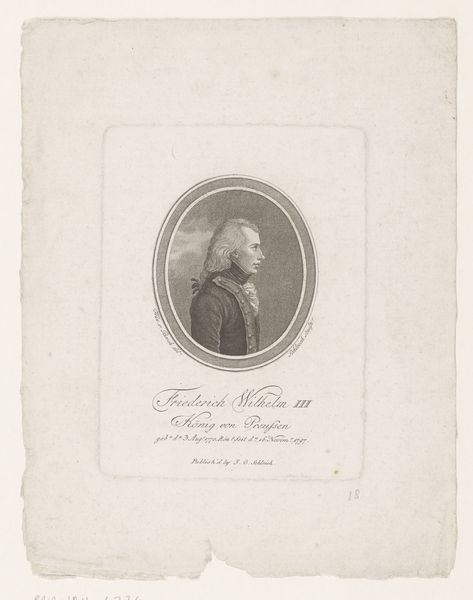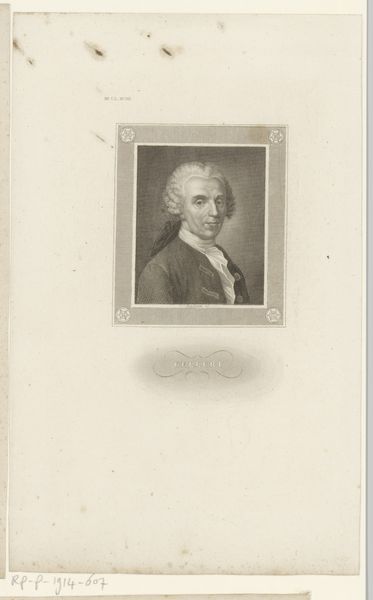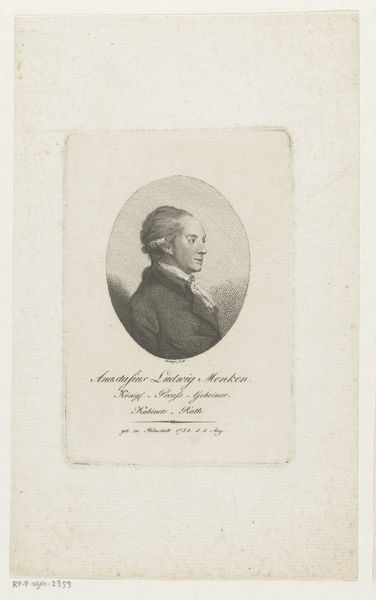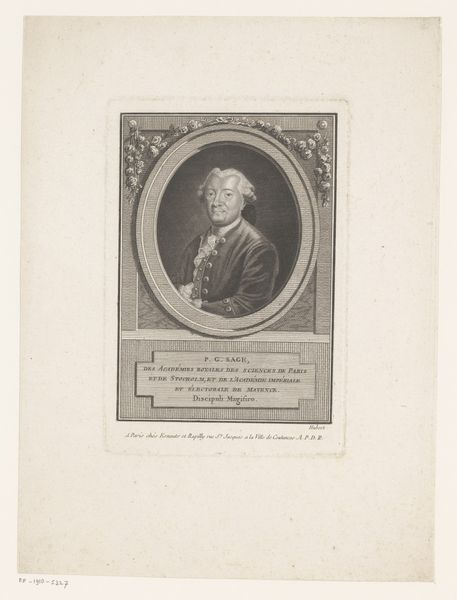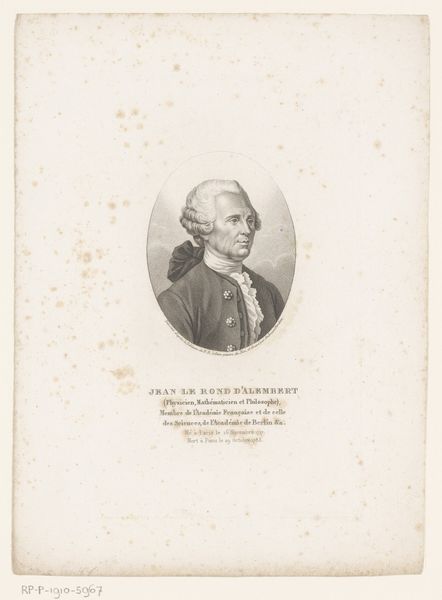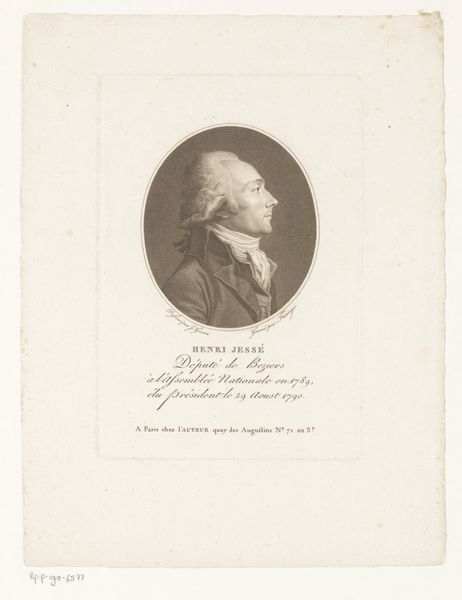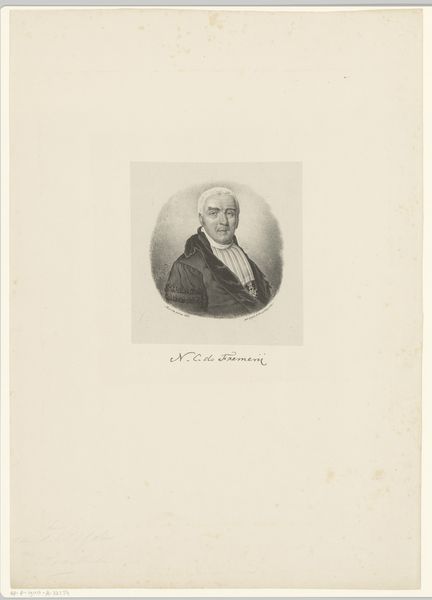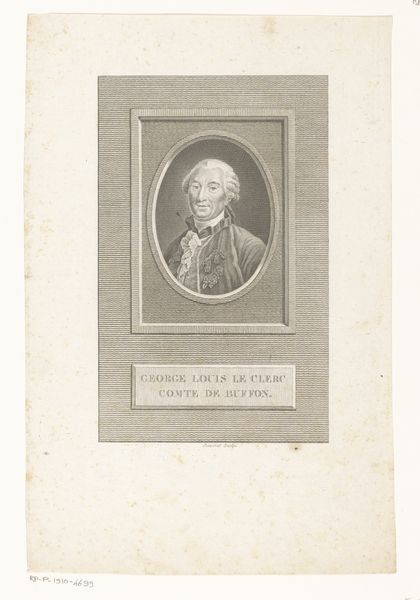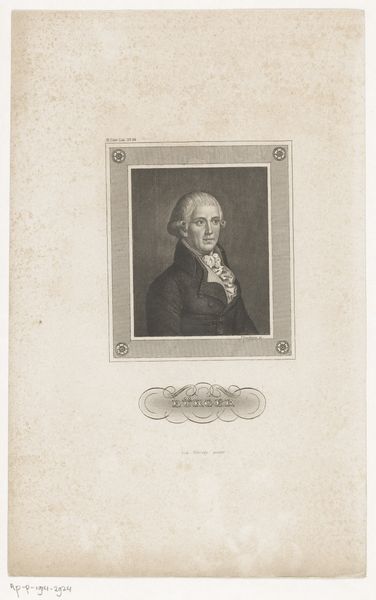
engraving
#
portrait
#
neoclacissism
#
history-painting
#
engraving
Dimensions: height 163 mm, width 111 mm
Copyright: Rijks Museum: Open Domain
Editor: Here we have François Bonneville’s "Portret van Guy-Jean-Baptiste Target", an engraving made between 1796 and 1802. I’m immediately struck by its formality. It feels like a very deliberate attempt to portray Target in a specific light. What can you tell us about the context in which this image was made? Curator: Absolutely. This portrait, rendered in the neoclassical style so prevalent during that era, offers us a glimpse into the political climate of post-revolutionary France. Bonneville’s choice to depict Target, a prominent figure in the drafting of the 1791 constitution, speaks volumes about the evolving role of public figures and the politics of image-making at the time. What do you think was the intention behind commissioning a portrait like this one? Editor: I imagine that it was to solidify Target's legacy, to frame him as a key player in shaping the nation's identity. It feels very official, like something meant for public consumption, to broadcast a message. Curator: Precisely. And think about the medium: engraving. It allowed for relatively easy reproduction and dissemination. How might that have impacted the image's reach and influence? Editor: Mass production would enable the image to be distributed widely. So this was an artwork meant for the masses, carefully framing the subject for political gain. I had thought of it as a formal portrait but failed to account for its potential as propaganda. Curator: It reveals how even seemingly straightforward portraiture can be deeply entangled with political projects. Considering the era, it is useful to examine how institutions can deploy artistic endeavors to shape political and public views. Editor: I see this work with completely different eyes. I will definitely rethink other pieces through the lens of the institutions involved in their production and display. Thank you for sharing that historical framework!
Comments
No comments
Be the first to comment and join the conversation on the ultimate creative platform.
